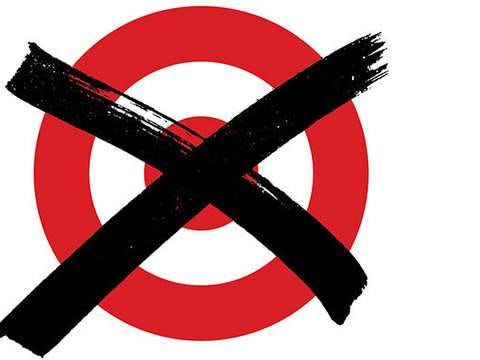One concrete step being advocated by many mainline Black denominations is the boycott of Target during Lent, from March 5 through April 17. “We’re asking people to divest from Target because they have turned their back on our community,” the Rev. Jamal Bryant said in an interview with CNN. Bryant, who is leading the boycott, is the pastor at an Atlanta-area megachurch.
Target was previously a major advocate of DEI programs as well as LGBTQ+ issues. But after Trump’s executive orders vilifying DEI, it was particularly quick to backtrack.
Bryant says that 140,000 people have signed up at targetfast.org, which has also taken off on TikTok. Here’s how the group explains its thinking:
In recent days, we have witnessed a disturbing retreat from Diversity, Equity, and Inclusion (DEI) initiatives by major corporations—companies that once pledged to stand for justice but have since chosen the path of compromise. These rollbacks represent more than just corporate decisions; they reflect a deeper erosion of the moral and ethical commitments necessary to build a just society. As people of faith, we cannot be silent. We are called to resist systems that perpetuate exclusion and inequity.
And leaders of some of the largest Black denominations in the country will be in Chicago on Thursday, Politico reports, to announce a campaign to call out companies that have dumped DEI. So stay tuned.
It is, of course, not only Black church leaders who are resisting and urging resistance.



Does that same logic not apply to boycotting Target? why would my individual boycott have any impact if the majority of Americans are still shopping at Target? I’m on the side of this initiative and I want to stick it to Target, and even I am struggling with it a bit. Imagine what the apolitical majority of shoppers are thinking and doing. I guess my point is that boycotts have never worked historically, and this one seems particularly unlikely to have any impact, even if 100% of American leftists participated. The parking lot at the Super Target near my home remains as packed as it has ever been.
Just to add to what alyaza said, not only do boycotts work historically, they are working with Target:
https://diversity.com/post/target-dei-rollback-2025-impact-update
Just because one store is still busy, does not mean it is not working.
The only clear financial impact I’m seeing is the 12% stock dip. That ain’t nothing, but it sounds like it is unrelated to the boycott, and stocks bounce around all the time.
Target has stated a 5-7% drop in foot traffic since their anti-DEI BS came out (that is when the boycotts initially began). For sure not the only factor, but it is a factor.
i mean if you want to argue yourself out of ever doing anything politically efficacious i can’t do anything to stop you, but surely even in that context you realize the massive gulf of difference between “not perusing the shelves of one specific company” and “attempting to live a net-zero lifestyle”, or between “demonstrating business will be lost for taking anti-woke positions” and “attempting to stop climate change through individual action”
I appreciate your takes on this. to be clear, i generally agree with you, but I have struggled to connect morals to action. I’ve participated in plenty of boycotts, this Target one has just been harder to work around for the reasons i mentioned earlier. It’s hard when you struggle with executive function and the boycott is targeted (oof) at your go-to grocery store. Thank you for sharing your activist energy and knowledge with us.
also this is just objectively incorrect and defeatist historiography. the Montgomery bus boycott was a boycott that worked; the Delano grape strike won because of a consumer boycott of non-union grapes; South Africa was brought to heel in large part because of popular opposition to apartheid, leading to large-scale divestment and eventually economic sanctions from even the most resistant countries (the US and UK primarily). hell even in recent years you don’t have to look far for the efficacy of boycotting tactics: David Hogg successfully got dozens of sponsors to stop running on the Ingraham Angle, and there’s a massive consumer boycott movement ongoing in Southeast Europe. the fact that it is more difficult to effectively organize a consumer boycott in the US does not mean it is impossible, and it is very silly to pretend that Americans have somehow—effectively—become mindless consumerists who can no longer voluntarily change their habits at scale in support of a cause they agree with
tbh I was only aware of the Montgomery boycott. thank you for the examples, I have some reading to do.